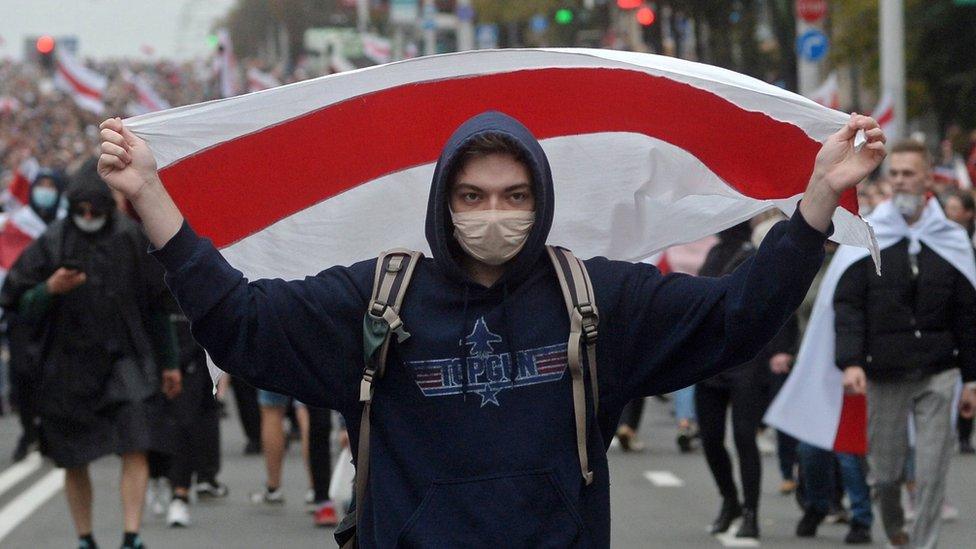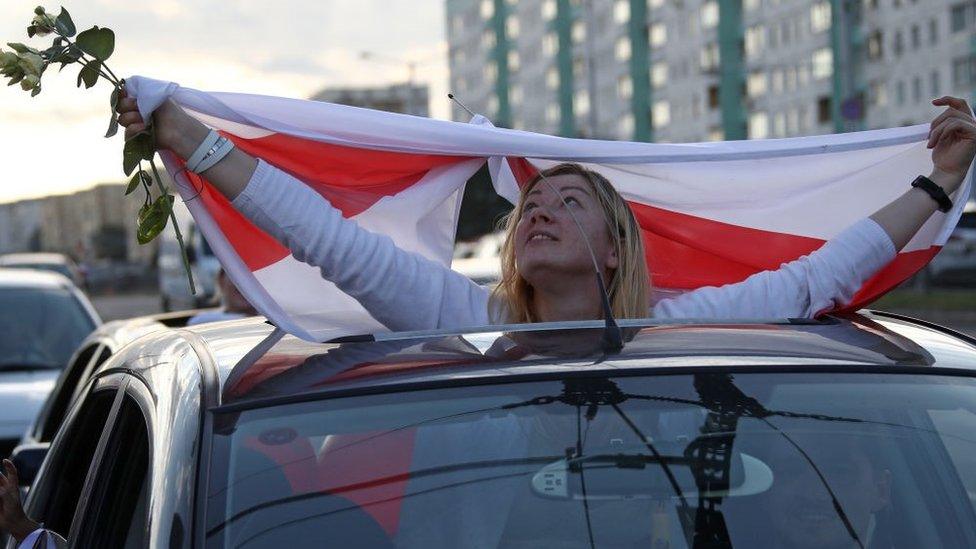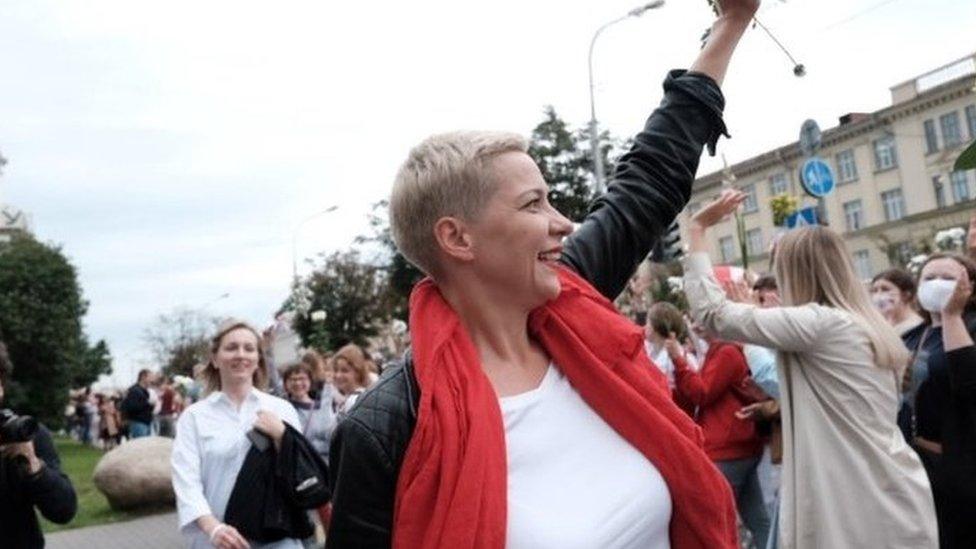Belarus election: Row with EU intensifies over disputed vote
- Published

Belarusian officials are accused of a crackdown on pro-democracy reporters in the country
The EU and Belarus have imposed sanctions on each other in an escalating row over a disputed presidential election.
Alexander Lukashenko claimed victory after the Belarus vote in August, but the EU says it was rigged.
On Friday, the EU announced it was sanctioning 40 members of Mr Lukashenko's team.
Belarus announced retaliatory measures the same day, but has not disclosed which EU officials have been targeted.
Belarus's electoral commission says Mr Lukashenko won a sixth term with more than 80% of the vote. But the opposition says he cheated and that they won the election with at least 60% of the vote.
Protesters have been taking to the streets for the past seven weeks calling for Mr Lukashenko to step down. Further protests are expected this weekend.
On Friday, the EU released a statement announcing measures including a travel ban preventing those listed from entering EU territories, external, and an asset freeze "used against the funds or economic resources of the listed persons".
Who has been targeted by sanctions?
The EU's sanctions target individuals involved in the election and subsequent crackdown on pro-democracy protesters in the country. The sanctions have already come into effect.
Among those on the list are said to be Interior Minister Yuri Karaev and top security official Alexander Valerievich Bykov, whom the EU accused of "torture of peaceful demonstrators".
According to AFP news agency, Mr Lukashenko was not included in the list in the hope of persuading him to take part in talks with the opposition.
German Chancellor Angela Merkel told journalists the sanctions were "an important signal because it strengthens the hand of those who are protesting for freedom of opinion in Belarus".
Belarus's foreign ministry has warned that the EU's sanctions will "affect people, their welfare and the economy".
It announced its own sanctions on the bloc, but the number of EU officials affected have not been made public by the government.
A statement from the foreign ministry, external said: "Belarus is always in words and in fact against confrontation. We are for dialogue and understanding. But as a sovereign state, we are also determined, albeit not without regret, to respond to unfriendly actions in order to naturally protect our national interests."
What else is happening?
On Friday, the US announced sanctions on eight officials it claims had roles in the "fraudulent" election. Mr Karaev is also on that list.
The UK and Canada have already imposed travel bans and asset freezes on Mr Lukashenko, his family and other officials.
Belarus took further measures on Friday, announcing it was cancelling all foreign media accreditation and reporters had to reapply.
It also summoned its ambassadors to Poland and Lithuania and demanded that the countries downsize their diplomatic missions in the capital, Minsk.
Belarusian envoys are set to leave Warsaw and Vilnius by 5 October, according to local media, external.
Both Poland and Lithuania have called on Mr Lukashenko to agree to another general election and condemned violence against pro-democracy protesters.
A 73-year-old great-grandmother has turned into an unlikely hero for demonstrators in Belarus
- Published16 August 2020

- Published8 September 2020
